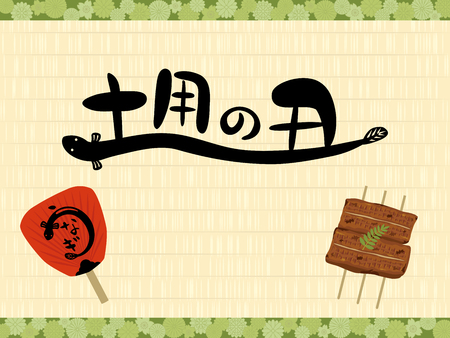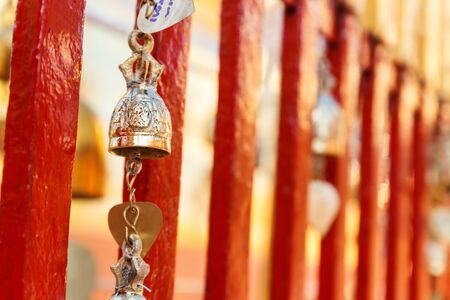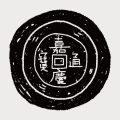Introduction: Unpacking Feng Shui and Wind Chimes in the American Home
Feng Shui, which translates to “wind and water,” is an ancient Chinese practice that focuses on harmonizing people with their environment. Over the years, this philosophy has traveled far beyond Asia and found a unique place in American homes. Among its many tools, wind chimes stand out as one of the most recognizable and widely used Feng Shui items.
But what is it about wind chimes that makes them so popular in the United States? For many Americans, wind chimes are not just decorative pieces; they are believed to bring good vibes, peace, and sometimes even prosperity. As interest in mindfulness, well-being, and holistic living has grown across the country, more people have turned to Feng Shui—often starting with easy-to-add items like wind chimes.
The meaning and use of wind chimes in America has evolved over time. While some stick closely to traditional Feng Shui guidelines, others simply enjoy the pleasant sound or the visual appeal of chimes on a porch or patio. Here’s a quick comparison of how wind chimes are viewed in traditional Feng Shui versus typical American households:
| Traditional Feng Shui | American Culture | |
|---|---|---|
| Main Purpose | Balance energy (chi), ward off bad luck | Create a calming atmosphere, home décor |
| Placement Rules | Specific locations for energy flow (e.g., entrance, wealth corner) | Anywhere that looks or sounds nice (porch, garden, windows) |
| Material Significance | Different materials for different intentions (metal for protection, wood for growth) | Chosen mostly for appearance or sound preference |
| Cultural Meaning | Tied to spiritual beliefs and symbolism | Associated with relaxation, nostalgia, or outdoor living |
This blend of ancient tradition and modern lifestyle has led to some common misunderstandings about what wind chimes can do and how they should be used. In the following sections, we’ll separate fact from fiction to help you make sense of wind chime myths in the context of American culture.
2. Myth: Wind Chimes Always Attract Good Luck and Wealth
Is Hanging a Wind Chime Really a Shortcut to Fortune?
One of the most popular beliefs in both the U.S. and around the world is that simply hanging a wind chime outside your front door or in your living room will instantly attract good luck, wealth, and prosperity. This idea sounds appealing—after all, who wouldn’t want an easy way to boost their fortune? But lets dive into what Feng Shui actually says about wind chimes and abundance.
The Real Factors Feng Shui Considers for Abundance
Feng Shui is more than just placing objects; it’s about understanding how energy, or “chi,” flows in a space. While wind chimes can help move stagnant energy, their effect depends on several factors—not just their presence. Here’s a breakdown:
| Factor | What Matters in Feng Shui | Common Misconception |
|---|---|---|
| Placement | Wind chimes should be placed where energy feels stuck, like near dark corners or hallways. | Anywhere you hang them will bring wealth. |
| Material & Sound | The material (metal, wood, ceramic) and tone should match your homes direction and energy needs. | All wind chimes work the same way. |
| Intention & Balance | Using wind chimes thoughtfully, with clear intention, helps harmonize spaces—not just attract money. | Wind chimes are magic money-makers by default. |
The Cultural Twist: American Homes & Wind Chimes
In American neighborhoods, wind chimes are often used for their soothing sounds or as decorative pieces on porches and patios. Feng Shui principles encourage using them with purpose rather than treating them as lucky charms. Simply put, if you hang a wind chime without considering placement, material, or the specific needs of your home’s energy flow, it may not have any impact at all—except making pleasant sounds on a breezy day!
The Bottom Line on Wind Chimes and Wealth
If you love the look and sound of wind chimes, go ahead and enjoy them! But remember: according to Feng Shui experts, creating abundance involves thoughtful arrangement, balance, and intention—not just adding a wind chime to your entryway.

3. Fact: Placement Matters More Than the Object
Many people in America think that simply hanging a wind chime anywhere will instantly bring good luck or positive energy, but that’s not how Feng Shui really works. In truth, the location and material of the wind chime have a much greater influence than just owning one. Let’s break down why placement is key and how you can make the most of your wind chimes at home.
Why Location Matters in Feng Shui
In Feng Shui, each direction and area of your home relates to specific aspects of life, like health, wealth, or relationships. Placing a wind chime in the right spot can help enhance positive energy (Chi) in those areas. For example, hanging a wind chime near your front door may help attract opportunities, while placing it in a quiet corner could stir up stagnant energy.
Choosing the Right Material
The material of your wind chime—metal, wood, ceramic—also plays a big role. Different materials are believed to work better in certain parts of your home. Here’s a simple guide:
| Material | Best Placement (Bagua Area) | Purpose/Effect |
|---|---|---|
| Metal | West, Northwest, North | Boosts creativity, helpful people & career luck |
| Wood/Bamboo | East, Southeast | Promotes growth, family harmony & wealth |
| Ceramic/Earth | Southwest, Northeast, Center | Supports relationships & knowledge |
Avoid Random Placement
If you hang a metal chime in the wrong area—like the South (which represents fire)—it may disrupt rather than improve energy flow. So it’s less about whether you have a beautiful wind chime and more about where you put it and what it’s made from.
Tips for Americans Applying Feng Shui at Home
- Use a Bagua map to identify key areas in your space (many apps and websites offer simple guides).
- Choose wind chimes that fit both your style and their recommended material for each area.
- Avoid placing wind chimes directly above beds or desks; instead, position them where they catch gentle breezes without disturbing daily life.
- If you’re unsure about directions, use your smartphone compass for easy orientation.
By focusing on thoughtful placement and material choice—not just the object itself—you’ll get much closer to real Feng Shui benefits with your wind chimes.
4. Myth: All Wind Chimes Are Created Equal
Many people in the U.S. believe that any wind chime will work for Feng Shui, as long as it looks nice or sounds pleasant. However, Feng Shui is all about intention and balance, and not all wind chimes are created equal. The material, shape, and sound of a wind chime each play an important role in how energy flows through your space.
Different Materials, Different Energies
According to Feng Shui principles, the material of a wind chime affects its energy or “Chi.” For example, metal wind chimes are often used to attract positive energy in the West, Northwest, and North areas of your home. Wooden wind chimes are better suited for the East and Southeast, where they can enhance growth and vitality.
| Material | Best Placement | Feng Shui Element | Intended Effect |
|---|---|---|---|
| Metal | West, Northwest, North | Metal | Attracts helpful people, luck, and career opportunities |
| Wood | East, Southeast | Wood | Promotes health, family harmony, and growth |
| Ceramic/Earth | Southwest, Northeast | Earth | Brings stability and grounding energy |
The Power of Shape and Number of Rods
The design of a wind chime also matters. Traditional Feng Shui suggests that the number of rods and their shapes can influence specific types of luck or protection. For example:
- 5 rods: Used to suppress negative energy (especially good near entryways).
- 6 or 8 rods: Attract wealth and prosperity.
- Tubular rods: Preferred over flat ones for stronger vibrations and better Chi movement.
The Importance of Sound Quality
The sound made by a wind chime isn’t just about what pleases your ear—its about vibration. Softer, melodic tones are thought to gently circulate good energy throughout your space, while harsh or discordant sounds may disturb the flow. When choosing a wind chime for Feng Shui purposes in your American home or garden, listen carefully before you buy!
Summary Table: Choosing Your Wind Chime Wisely
| Aspect | Why It Matters in Feng Shui | What to Look For |
|---|---|---|
| Material | Differing energies enhance or calm specific life areas. | Select metal for career/luck; wood for health/growth. |
| Shape & Number of Rods | Affects type of energy attracted or repelled. | More rods for prosperity; five for protection. |
| Sound Quality | Smooth flow of Chi depends on harmonious sounds. | Avoid clunky or harsh tones; choose gentle melodies. |
This debunks the myth that any wind chime will do. Thoughtful selection based on these elements can make all the difference in how effective your wind chime is within your living space according to Feng Shui traditions adapted for modern American homes.
5. Fact: Respecting Personal Preference and Cultural Context
When it comes to Feng Shui and wind chimes, its important to recognize that personal taste and cultural background play a big role in how these objects are used and appreciated. In the United States, homeowners often blend traditional Feng Shui concepts with their own sense of style, creating spaces that feel comfortable and meaningful to them.
Balancing Tradition and Individuality
Traditional Feng Shui may suggest placing wind chimes in specific locations or choosing certain materials for best results. However, American homes are diverse, and so are the people living in them. Some might love the gentle sound of metal wind chimes on a front porch, while others prefer wooden ones hanging in a backyard garden. The key is to find what works for you while respecting the basic principles of harmony and positive energy.
Examples: How Preferences Can Align or Diverge
| Traditional Feng Shui | Common American Practice | How They Can Work Together |
|---|---|---|
| Metal chimes in the West or Northwest areas for luck | Choosing chimes based on sound preference, regardless of direction | Select metal chimes that sound pleasant and place them where you enjoy them most |
| Avoiding wind chimes inside bedrooms | Placing chimes wherever they look good or sound nice, even indoors | If you like indoor chimes, opt for soft tones and avoid overuse in restful spaces |
| Following strict placement rules based on compass directions | Hanging wind chimes for decorative purposes without regard to direction | Combine aesthetic choices with basic Feng Shui suggestions for balance |
Taking a Holistic Approach
The best way to use wind chimes is by considering both your personal preferences and the overall feeling of your home. Ask yourself: Does this sound make me happy? Does this decoration fit my style? By blending American individuality with Feng Shui ideas, you can create a space that feels both harmonious and uniquely yours.


